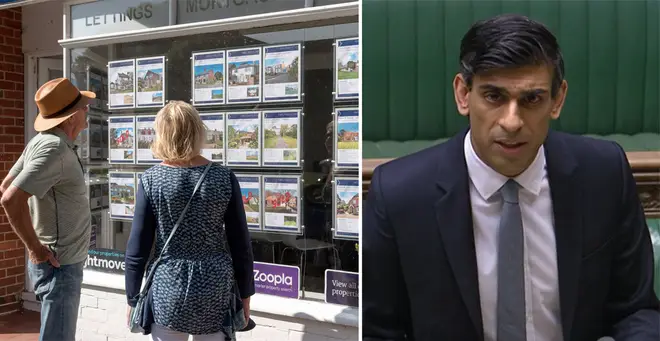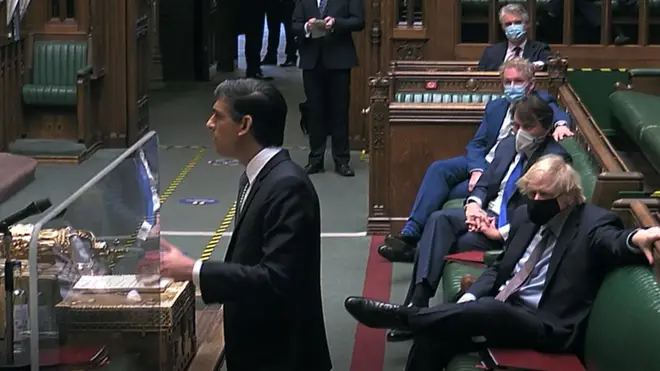On Air Now
Saturday Breakfast with JK & Kelly Brook 9am - 12pm
3 March 2021, 13:42 | Updated: 3 March 2021, 14:09

Stamp duty holiday end date: what date has the stamp duty holiday been extended to?
Earlier today, Rishi Sunak addressed the stamp duty holiday as he delivered his Spring 2021 Budget.
Speaking from the House of Commons, the Chancellor said that that the stamp duty holiday introduced last year had helped hundreds of people buy homes and support the economy, but that many buyers wouldn't be able to benefit before the 31 March deadline due to the volume of transactions.
Read more: Hopes for summer holidays as Spain plans 'green corridor' for Brit tourists
He said that the £500,000 nil-rate band will therefore be extended until later this year.
Here's your need-to-know.

Read more: Parents and guardians of children told to self-isolate could get £500 support payment
The £500,000 nil-rate band stamp duty holiday will end on 30 June 2020. This is a three month extension on the previous deadline of 31 March 2021.
This means that anyone who purchases a property by June 30 2021 will not have to pay tax on the first £500,000.
After that date, the Chancellor said he will 'smooth the transition back to normal' but making the nil rate band £250,000 from that date - which is double its standard level - until the end of September.
The usual level of £125,000 will resume from 1 October 2021.

The stamp duty holiday was brought in in July of last year to help the housing market during the coronavirus pandemic.
In today's Budget, Mr Sunak also announced that there will be a mortgage guarantee scheme, with first-time buyers able to purchase a property with a five per cent deposit and 95 per cent mortgage.
Speaking prior to announcing the Budget, Mr Sunak discussed the impact the coronavirus crisis has had on the country.
He said: "What was originally thought to be a temporary disruption to our way of life has fundamentally altered it.
"Much has changed, but one thing has stayed the same - I said I Would do whatever it takes, I have done, and I will continue do so.
"We have announced over £280 billion of support, protecting jobs, keeping businesses afloat, and helping families get by.
"Despite this unprecedented response, the damage it has done to economy has been acute."
NOW READ:
UK weather: temperatures to plummet below -10C in Arctic freeze